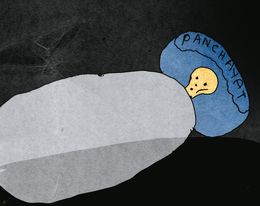Having incarcerated the entire political and civil society leadership of Kashmir besides much of the intelligentsia, and intimidated academics and the media, the Narendra Modi government is now engaged in an exercise unprecedented in any democracy ever. It is trying to spawn, through a form of artificial political insemination, a new breed of quislings to constitute an alternative political elite that will carry the Hindu rashtra into Muslim Kashmir.
The chosen instrument for this nefarious purpose is the block development committee (BDC), “elected” by the heads of the hakka (village) panchayats under the erstwhile Jammu and Kashmir Assembly’s legislation.
It is often claimed, even by critics of the events of August 5, that Article 370—which made the applicability of Central legislation to J&K conditional on approval by the state assembly—had over the years been “hollowed out”. This is simply untrue as evidenced by the non-implementation for over a quarter of a century of the 73rd and 74th amendments to the Constitution, passed virtually unanimously by both houses of Parliament in December 1992. These amendments incorporated Part IX and Part IX A into the Constitution—relating respectively to the panchayats and the municipalities—that revolutionised local self-government in both rural and urban India. It was never implemented in J&K, which continued with its old single-tier hakka panchayat system, privileging the state’s constitutional right under Article 370 to accept or reject Central legislation.
The avowed purpose of de-operationalising Article 370 on August 5 was to bring J&K’s jurisprudence in line with the rest of the country. Yet, the first political move being made by the Centre, after reconstituting J&K as a Union territory, has been to avail of what ought to be, according to their lights, now “obsolete” J&K legislation.
The Constitution of India contains alternative arrangements to accord constitutional sanction, sanctity and safeguards to grass roots-level democracy, and promote inclusive growth through inclusive governance. Instead of availing of these constitutional provisions, the BJP government at the Centre is abusing its new-found authority in the state to cynically undertake a draconian form of social and political engineering to invent a wholly artificial political class to replace the existing political class. The hypocrisy is breathtaking.
Under the Indian Constitution, the intermediate (block) level of the panchayat system is directly elected by the electorate as a whole under party labels and symbols. Under the J&K legislation, the block level local self-government institution is not elected by the people. Instead, a highly restricted cabal of hakka panchayat sarpanches constitutes the electoral college for BDC elections. The cabal this time is even more restricted because the hakka panchayat elections held by the J&K administration—after the wholly illegitimate dissolution of the democratically-elected J&K Assembly by the BJP-appointed governor—were boycotted by the mainstream political parties in the valley.
This resulted in an unrepresentative and minuscule turnout of voters. Some hakka panchayats have been constituted by just two votes cast in the entire hakka area. The voters, who normally come out in huge numbers, ranging up to 75 to 95 per cent, in hakka panchayat elections, saw the BJP-run elections as a farce, and refused to participate in the wholly bogus and undemocratic process. The sarpanches so “elected” are now holed up in hotels to protect them from their villagers’ fury. They are being beguiled by promises of MLA-ships to become the “new political class” that the BJP is inventing for Kashmir. The farce is foredoomed.
Aiyar is a former Union minister and social commentator.


